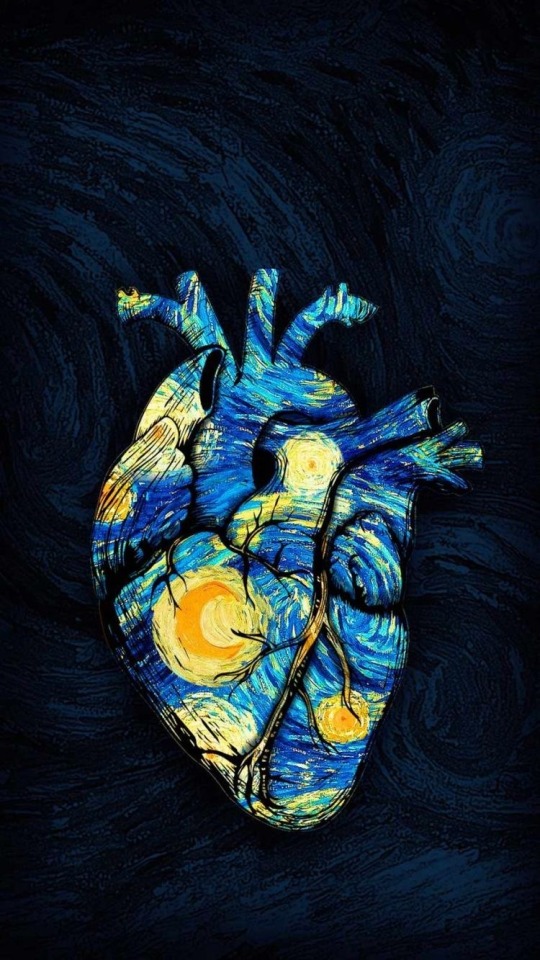#Cultural Background
Text
Immigration: Impacts Of Acculturation On Interpersonal Relationships
Acculturation, the process by which individuals adopt traits of a new culture, significantly impacts interpersonal relationships within the same ethnic group.
While your relatives who have lived in America for many years may still speak the same language as you and even express similar values that align with what is acceptable in your culture, they have transformed into different individuals since migrating. They no longer embody the predictable behaviors that you would expect from people of your tribe. This cultural shock is often challenging for…

View On WordPress
#acculturation#accultured#America#communication#cultural#cultural background#cultural influence#cultural norms#cultural shock#culture#empathy#family#immigrant#immigrants#immigrate#immigrating#immigration#multicultural#multiculturalism#Nigeria#Nigerian#Nigerian immigrant#Nigerian-American#relationships
0 notes
Text
The Power of Perception
How Our Minds Shape Our Reality
Perception is a fascinating aspect of human existence. It is the lens through which we view the world, shaping our reality and influencing our thoughts, emotions, and actions. Our perceptions are not simply passive observations of the external world; they actively construct our understanding of reality. Understanding the power of perception can lead to a greater appreciation for the complexity of human experience and can help us navigate the challenges of life with a more open and curious mindset.
Perception as a Filter
Our perceptions act as a filter through which we interpret and make sense of the overwhelming amount of information bombarding our senses at any given moment. Every sight, sound, taste, smell, and touch is subjected to our perceptual filter, determining what we pay attention to and how we interpret it. This filtering process is influenced by a multitude of factors, including our past experiences, cultural background, beliefs, and values.
For example, imagine walking into a crowded room full of strangers. Your perception will immediately come into play, determining who you notice, how you interpret their body language, and whether you feel comfortable or anxious in the environment. Two people can have entirely different experiences in the same situation based on their unique perceptual filters.
The Role of Beliefs and Expectations
Beliefs and expectations play a significant role in shaping our perceptions. Our minds are wired to seek confirmation of what we already believe to be true, and we often make sense of new information by fitting it into our existing belief systems. This tendency can be both beneficial and limiting. While it helps us make sense of the world quickly, it can also blind us to alternative perspectives and new possibilities.
For instance, imagine two individuals attending a job interview. One person firmly believes they are qualified and deserving of the position, while the other feels insecure and doubts their abilities. These different beliefs will influence how they perceive the questions asked, the interviewer's body language, and their overall experience of the interview. The person with a positive belief system may feel more confident and perform better, while the person with self-doubt may struggle and perceive the experience as negative.
The Influence of Emotions
Emotions also have a profound impact on our perceptions. When we experience strong emotions, they can color our view of reality and distort our judgments. For example, when we are angry, we may interpret neutral comments as insults, and when we are anxious, we may perceive harmless situations as threatening.
On the other hand, positive emotions can broaden our perception and enhance our ability to see possibilities and opportunities. When we experience joy or gratitude, our perceptual filters expand, allowing us to notice and appreciate the beauty around us. This positive outlook can lead to a more optimistic and resilient mindset.
The Power of Shifting Perspectives
Recognizing the power of perception offers us an opportunity for personal growth and transformation. By becoming aware of our own perceptual filters and biases, we can challenge them and open ourselves up to new ways of seeing the world. This process requires curiosity, self-reflection, and a willingness to embrace discomfort.
One effective way to shift our perspective is through mindfulness practices. Mindfulness helps us become more aware of our thoughts, emotions, and sensations, allowing us to observe our perceptual filters in action. Through this observation, we can begin to question our assumptions and consider alternative interpretations of our experiences.
Engaging in dialogue with others who hold different perspectives is another powerful tool for expanding our perception. By actively listening and empathizing with others, we can gain insights into their worldview and challenge our own preconceived notions. This process fosters greater understanding, empathy, and tolerance.
Embracing a Fluid Reality
Perception is a dynamic and ever-changing process. Our reality is not fixed; it is continuously shaped by our perceptions, which in turn influence our thoughts, emotions, and actions. Embracing the fluidity of perception allows us to approach life with a sense of curiosity and wonder, rather than rigidly holding onto fixed beliefs.
By cultivating awareness of our perceptual filters, challenging our biases, and seeking out diverse perspectives, we can expand our understanding of the world and foster personal growth. The power of perception lies in its ability to shape our reality, and by harnessing this power, we can create a more compassionate, inclusive, and fulfilling existence.
#Power of Perception#Perception as a Filter#Past Experiences#Cultural Background#Beliefs and Values#Beliefs and Expectations#Confirmation Bias#Influence of Emotions#Positive Emotions#Shifting Perspectives#Mindfulness Practices#Self-Reflection#Dialogue with Others#Fluid Reality#Personal Growth#Compassion and Inclusivity#Curiosity#Resilient Mindset#Diverse Perspectives#pryceonpurpose
0 notes
Text
The Intelligence Myth: Understanding Complex Thematic Pieces
Seeking knowledge and understanding is inherent in our nature as human beings. We want to make sense of the world around us, and we use various tools to do so, including literature, art, and music. However, sometimes we may encounter a piece of work that is so complex and abstract that we struggle to grasp its meaning. In these situations, it’s important to remember that just because we can’t…

View On WordPress
0 notes
Text
Which aspects do you think makes a person unique?
No one else can or will have your exact collection of knowledge, experiences, and perceptions that causes you to be who you are.
Every person is a unique puzzle composed of pieces of personality, life experiences, knowledge, and emotions. No one else can or will have your exact collection of knowledge, experiences, and perceptions that causes you to be who you are. No one else is going to…

View On WordPress
#attitude#beliefs and attitudes#characteristics#communication styles#creativity#cultural background#dailyprompt#dailyprompt-1894#distinctive features#emotional intelligence#energy#environmental factors#experiences#genetic influences#Individuality#interests and passions#life experiences#mind reading#nature vs. nurture#personal identity#personal values#personality#personality traits#psychological makeup#self-awareness#social influences#talents and skills#uniqueness#uniqueness factors
1 note
·
View note
Text

Hisuian ghosts in a snow grove
#pixelart#ドットの日#pixel animation#zoroark#pokemon#hisuian zoroark#pixel background#pokemon fanart#japanese culture#yokai#ghost pokemon#nintendo#retrogamer#super nintendo#game boy color#8 bit aesthetic#16 bit games#2d animation
19K notes
·
View notes
Text
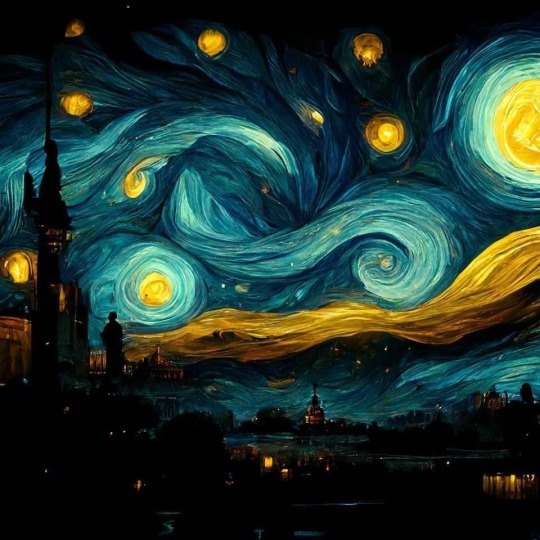
Van Gogh’s world
#art#painting#starry night#artist#vicent van gogh#artistic#painter of the night#art history#culture#van gogh#van goh#van gough#artists on tumblr#wallpaper#museumofmodernart#digital art#museumarchive#museums#background#museumlife
8K notes
·
View notes
Text
there's something about the way people talk about john gaius (incl the way the author writes him) that is like. so absent of any connection to te ao māori that it's really discomforting. like even in posts that acknowledge him as not being white, they still talk about him like a white, american leftist guy in a way that makes it clear people just AREN'T perceiving him as a māori man from aotearoa.
and it's just really serves to hammer home how powerful and pervasive whiteness and american hegemony is. because TLT is probably the single most Kiwi series in years to explode on the global stage, and all the things i find fraught about it as a pākehā woman reading a series by a pākehā author are illegible to a greater fandom of americans discoursing about whether or not memes are a valid way of portraying queer love.
idk the part of my brain that lights up every time i see a capital Z printed somewhere because of the New Zealand Mentioned??? instinct will always be proud of these books and muir. but i find myself caught in this midpoint of excitement and validation over my culture finding a place on the global stage, frustration at how kiwi humour and means of conveying emotion is misinterpreted or declared facile by an international audience, frustrated also by how that international audience runs the characters in this book through a filter of american whiteness before it bothers to interpret them, and ESPECIALLY frustrated by how muir has done a pretty middling job of portraying te ao māori and the māoriness of her characters, but tht conversation doesn't circulate in the same way* because a big part of the audience doesn't even realise the conversation is there to be had.
which is not to say that muir has done a huge glaring racism that non-kiwis haven't noticed or anything, but rather that there are very definitely things that she has done well, things that she has done poorly, things that she didn't think about in the first book that she has tacked on or expanded upon in the later books, that are all worthy of discussion and critique that can't happen when the popular posts that float past my dash are about how this indigenous man is 'guy who won't shut up about having gone to oxford'
*to be clear here, i'm not saying these conversations have never happened, just that in terms of like, ambient posts that float round my very dykey dash, the discussions and meta that circulate on this the lesbian social media, are overwhelmingly stripped of any connection to aotearoa in general, let alone te ao māori in specific. and because of the nature of american internet hegemony this just,,,isn't noticed, because how does a fish know it's in the ocean u know? i have seen discussions along these lines come up, and it's there if i specifically go looking for it, but it's not present in the bulk of tlt content that has its own circulatory life and i jut find that grim and a part of why the fandom is difficult to engage with.
#tlt#the locked tomb#i don't really have an answer lmao this is more#an expression of frustration and discomfort#over the way posts about john gaius seem to have very little connection to the background muir actually gave him#like you cant describe him as an educated leftist bisexual man#without INCLUDING that he is māori#that has an impact! that has weight and importance!#that is a background to every decision he makes#from the meat wall to the nuke to his relationship with the earth#and it also has weight and importance in the decisions that muir makes in writing him#it is not a neutral decision that he's known as john gaius lmao#it's not a neutral decision that the empire is explicitly of roman/latin extraction#it's not even neutral that this is a book about necromancy#it's certainly not a neutral fucking decision that john was at one point a māori man living in the bush#when the nz govt decided to send cops in#like that is a thing that happens here! that is a reference to nz cultural and political events that informs john's character and actions#and with the nature of who john is in the story#informs the narrative as a whole#and i think the tiresome part of this experience is that#in general#americans are not well positioned to understand that something might be being written from outside their experience as a default#like obviously many many americans in online leftist & queer spaces are willing to learn and take on new information#but so much of the conversation starts from a place of having to explain that forests exist to fish
898 notes
·
View notes
Text
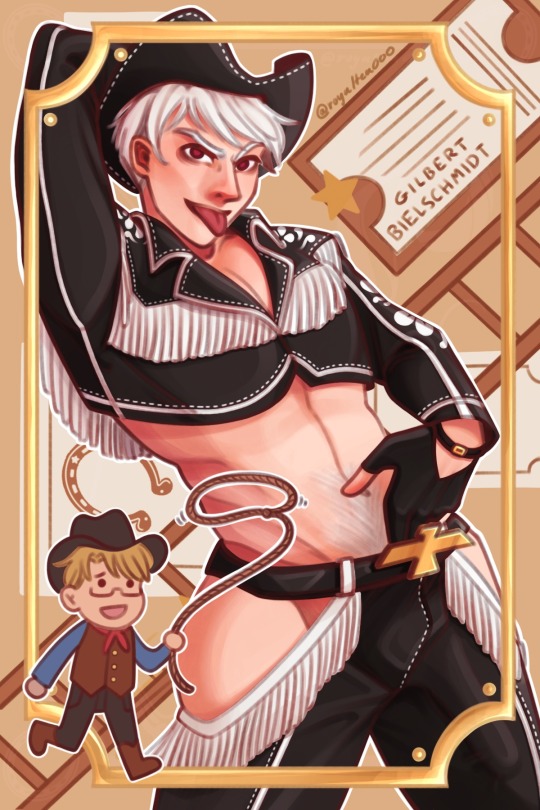
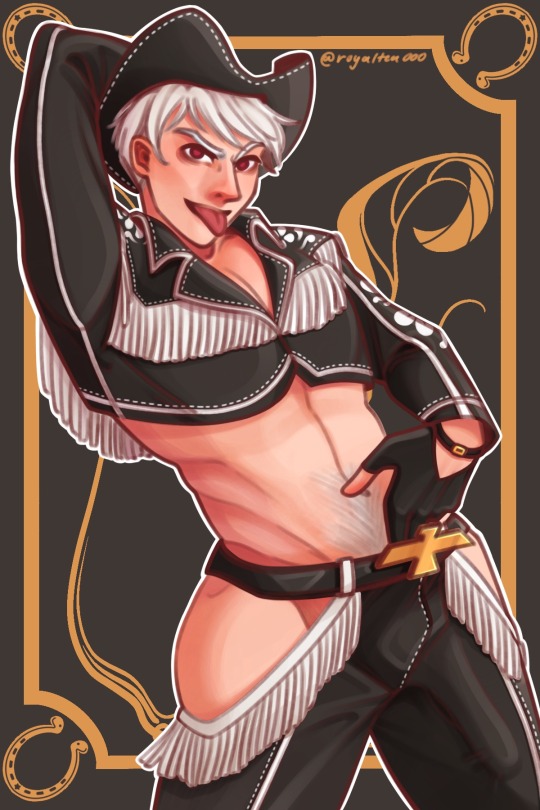
Is that a gun in your pocket or are you just happy to see me ;)
#listen.#I know.#I know very well that I cannot draw a background.#😭#please… have mercy or2#in my cowboy pinup era#gave him one HANGER of a packer#can y’all tell this is a derivative of ken’s outfit#cowboy Gil call that a cultural exchange#The exchange is that he makes Al eat the car crash raw meat porcupine thing#that thing makes me feel unwell#gave him a third fucking leg#tell you what tho I’ll never draw him using it 💀#hetalia fanart#hetalia#hws prussia#aph prussia#gilbert beilschmidt#you can’t see the second background but it’s a cow skull with twisty horns :(#fuck it just take this I’m gonna fuck it up if I work on it anymore o(-(#digital art#my art#commissions open#artists on tumblr#procreate#digital illustration#fanart#digital painting#cowboy#illustration
172 notes
·
View notes
Text
Guillermo must read like a Southern Gothic post to his entire family.
Imagine your only kid has been married to his work in food service/the railroad/food service at the railroad? for fifteen years and it's the reason he never sees you. One time he came home and said he could get you a mini-fridge from his friend who was once dead but it's fine now. He left to go get it and didn't come back. Some people are filming the whole time.
Another time he disappeared to London for a year, and when he came back he finally let you see his house. It's a trash-covered mansion with a tree through the ceiling. He appears to live there by himself. He's exchanged his sweaters for Versace and a watch that's more expensive than God. He tells you he's gay, which you knew, even though you've never talked about it and he's been sending you photos of some woman you haven't met (you think?) for years. Some people are again filming, this time for his grandma's birthday, except there's no cake or presents and you never see a copy of the videotape.
He bought you a house last year. But the first time he's come for your birthday in three or four years he doesn't bring a gift, and spends the time frantically whispering to someone on the phone. The people are still filming him. It's been like five years of them filming him. He's in the sweaters again.
He tells you he can't say why or what's going to change for him, but he can never see you again. You ask if what he's doing is making him happy but don't give him time to answer. It's the first direct question you've really asked him all evening. Then you ask him where his crucifix is. He needs one, it'll help. It's really important that he have one, and he keeps losing them. So scatterbrained. This is what will make it better.
(You don't see his face as you force the chain around his neck. You don't see him disappearing before your eyes. Was it always this way, with you two, or did it happen over time?)
You casually tell the cousin who's been lecturing him all night that he comes by weekly now to say goodbye forever. Your sweet boy, so dramatic, even as a child. So mysterious. You just don't know what he's thinking. But he'll be back.
#i know there's rule of comedy and cultural markers that aren't my background and stuff#(and also that we learn it's not the first time they've had the conversation)#but i feel like guillermo learned how to shop at the emotional repression store really young#anyway if he were my kid i'd be scared he was drug trafficking#fandom: wwdits#what we do in the shadows#wwdits#guillermo de la cruz#char: guillermo the relentless#i am a meta gremlin
500 notes
·
View notes
Text
I have a lot of complicated feelings when it comes to what Neflix has done with the Witcher, but my probably least favourite is the line of argumentation that originated during shitstorms related to the first and second season that I was unlucky to witness.
It boils down to "Netflix's reinterpretation and vision is valid, because the Witcher books are not written to be slavic. The overwhelming Slavic aestetic is CDPR's interpretation, and the setting in the original books is universally European, as there are references to Arthurian mythos and celtic languages"
And I'm not sure where this argument originated and whether it's parroting Sapkowski's own words or a common stance of people who haven't considered the underlying themes of the books series.
Because while it's true that there are a lot of western european influences in the Witcher, it's still Central/Eastern European to the bone, and at its core, the lack of understanding of this topic is what makes the Netflix series inauthentic in my eyes.
The slavicness of the Witcher goes deeper than the aestetics, mannerisms, vodka and sour cucumbers. Deeper than Zoltan wrapping his sword with leopard pelt, like he was a hussar. Deeper than the Redanian queen Hedvig and her white eagle on the red field.
What Witcher is actually about? It's a story about destiny, sure. It's a sword-and-sorcery style, antiheroic deconstruction of a fairy tale, too, and it's a weird mix of many culture's influences.
But it's also a story about mundane evil and mundane good. If You think about most dark, gritty problems the world of Witcher faces, it's xenophobia and discrimination, insularism and superstition. Deep-seated fear of the unknown, the powerlessness of common people in the face of danger, war, poverty and hunger. It's what makes people spit over their left shoulder when they see a witcher, it's what makes them distrust their neighbor, clinging to anything they deem safe and known. It's their misfortune and pent-up anger that make them seek scapegoats and be mindlessly, mundanely cruel to the ones weaker than themselves.
There are of course evil wizards, complicated conspiracies and crowned heads, yes. But much of the destruction and depravity is rooted in everyday mundane cycle of violence and misery. The worst monsters in the series are not those killed with a silver sword, but with steel.
it's hard to explain but it's the same sort of motiveless, mundane evil that still persist in our poorer regions, born out of generations-long poverty and misery. The behaviour of peasants in Witcher, and the distrust towards authority including kings and monarchs didn't come from nowhere.
On the other hand, among those same, desperately poor people, there is always someone who will share their meal with a traveller, who will risk their safety pulling a wounded stranger off the road into safety. Inconditional kindness among inconditional hate. Most of Geralt's friends try to be decent people in the horrible world. This sort of contrasting mentalities in the recently war-ridden world is intimately familiar to Eastern and Cetral Europe.
But it doesn't end here. Nilfgaard is also a uniquely Central/Eastern European threat. It's a combination of the Third Reich in its aestetics and its sense of superiority and the Stalinist USSR with its personality cult, vast territory and huge army, and as such it's instantly recognisable by anybody whose country was unlucky enough to be caught in-between those two forces. Nilfgaard implements total war and looks upon the northerners with contempt, conscripts the conquered people forcibly, denying them the right of their own identity. It may seem familiar and relevant to many opressed people, but it's in its essence the processing of the trauma of the WW2 and subsequent occupation.
My favourite case are the nonhumans, because their treatment is in a sense a reminder of our worst traits and the worst sins in our history - the regional antisemitism and/or xenophobia, violence, local pogroms. But at the very same time, the dilemma of Scoia'Tael, their impossible choice between maintaining their identity, a small semblance of freedom and their survival, them hiding in the forests, even the fact that they are generally deemed bandits, it all touches the very traumatic parts of specifically Polish history, such as January Uprising, Warsaw Uprising, Ghetto Uprising, the underground resistance in WW2 and the subsequent complicated problem of the Cursed Soldiers all at once. They are the 'other' to the general population, but their underlying struggle is also intimately known to us.
The slavic monsters are an aestetic choice, yes, but I think they are also a reflection of our local, private sins. These are our own, insular boogeymen, fears made flesh. They reproduce due to horrors of the war or they are an unprovoked misfortune that descends from nowhere and whose appearance amplifies the local injustices.
I'm not talking about many, many tiny references that exist in the books, these are just the most blatant examples that come to mind. Anyway, the thing is, whether Sapkowski has intended it or not, Witcher is slavic and it's Polish because it contains social commentary. Many aspects of its worldbuilding reflect our traumas and our national sins. It's not exclusively Polish in its influences and philosophical motifs of course, but it's obvious it doesn't exist in a vacuum.
And it seems to me that the inherently Eastern European aspects of Witcher are what was immediately rewritten in the series. It seems to me that the subtler underlying conflicts were reshaped to be centered around servitude, class and gender disparity, and Nilfgaard is more of a fanatic terrorist state than an imposing, totalitarian empire. A lot of complexity seems to be abandoned in lieu of usual high-fantasy wordbuilding. It's especially weird to me because it was completely unnecessary. The Witcher books didn't need to be adjusted to speak about relevant problems - they already did it!
The problem of acceptance and discrimination is a very prevalent theme throughout the story! They are many strong female characters too, and they are well written. Honestly I don't know if I should find it insulting towards their viewers that they thought it won't be understood as it was and has to be somehow reshaped to fit the american perpective, because the current problems are very much discussed in there and Sapkowski is not subtle in showing that genocide and discrimination is evil. Heck, anyone who has read the ending knows how tragic it makes the whole story.
It also seems quite disrespectful, because they've basically taken a well-established piece of our domestic literature and popular culture and decided that the social commentary in it is not relevant. It is as if all it referenced was just not important enough and they decided to use it as an opportunity to talk about the problems they consider important.
And don't get me wrong, I'm not forcing anyone to write about Central European problems and traumas, I'm just confused that they've taken the piece of art already containing such a perspective on the popular and relevant problem and they just... disregarded it, because it wasn't their exact perspective on said problem.
And I think this homogenisation, maybe even from a certain point of view you could say it's worldview sanitisation is a problem, because it's really ironic, isn't it? To talk about inclusivity in a story which among other problems is about being different, and in the same time to get rid of motifs, themes and references because they are foreign? Because if something presents a different perspective it suddenly is less desirable?
There was a lot of talking about the showrunners travelling to Poland to understand the Witcher's slavic spirit and how to convey it. I don't think they really meant it beyond the most superficial, paper-thin facade.
#The witcher#Sorry if its convoluted I just got reminded of something and it made me a little angry#and as I had this conversation a lot of times I've decided to put it into written text#sorry about being bitter#but these are some of my favourite books and I'm still upset when I get reminded how badly they were treated in the recent adaptation#I'm not saying you should never change anything#But it's good to have enough background to understand why some things are the way they are in the original#and to understand what the source material is about#we don't talk about particular character's looks or something (altough I feel they could care more about it too)#but central themes tropes and motifs#long post#it may seem like I'm talking from a high horse here#people are welcome to interpret literature however they want#Nobody has a monopol on themes#I just think that in this particular case the cultural context influences the worldbuilding#and if changed it doesn't have the same impact anymore#meta
153 notes
·
View notes
Note
If you're requesting things for Sweden, I'd love to see him in historical clothes! Either has a Carolean or in the outfit he wore to Gustav Vasa's coronation! I love your art and your posts always make my day. 💛
Thank you anon, your support makes my day <3 I went with something more reminiscent of the Vasa era! Yellow is a tricky color to pull off, but I wanted to try it out. He's so baby-faced..

#hws sweden#historical hetalia#culture/history stuff#my art#i tried something new with the background. we'll see if i like it
212 notes
·
View notes
Text
I'm not mad I'm just disappointed because if you spent two seconds to think about how fur and leather alone has deep ties to human culture and our understanding and appreciation of the natural world it's honestly really beautiful and just feels so strange to me that people who say they love nature want to divorce themselves from it.
Like yes, capitalism bad. I don't agree with the way that animals are treated as products to the point where blatant animal cruelty is excused by mega corporations. I want places like that to be held accountable and made to follow higher welfare standards for the animals they raise and the underpaid employees out there working in sometimes awful and very unsafe conditions.
But if you're simultaneously ignoring the culture of African leathermaking or the beautiful leather and wool textiles crafted by Indigenous artisans or the ways that ancient humans appreciated the animals they killed for meat and clothing by telling stories and making art depicted on the skins of the animals they took, that's what bothers me.
So many people are willing to just attack vulnerable communities instead of learning about thier culture and how animal products were used traditionally and today. There are better ways to raise animals for products sustainably and humanely and many of these communities have spoken very loudly about it but are yelled over by people who just want to be right or don't want to listen or just don't care.
So yes, I will continue to speak my mind and educate myself because if nothing else I wanna be the start of the change I wanna see in the world. I love animals and I love learning the history of humans and our relationships to animals. I want to be able to appreciate them in the ways we always have. With respect to the natural world and understanding that we're also a part of it.
#jackal's journal#ok I'm done#I can't sleep so I'm rambling but#stop assuming your way is the only way#or that people who defend the use of animal products are just automatically siding with the devil#ya'll don't even know how hard it is to research my own cultural background because of this#like given I had the time and resources I would LOVE to study African-American leathermaking and use of animal products#but so many businesses were wiped from existence or bought up or shut down#lemme stop before I get too passionate in my own damn tags#I just got feelings
1K notes
·
View notes
Text
"What's it about?"
"Basically about my experience being aromantic and asexual. Like, being in a world where romance and sex are prized above everything when you don't feel those forms of attraction. Growing up feeling that something about you is different, but you don't have the words to describe what that is. But then, freedom. The euphoria of freeing yourself from those pressures and expectations."
- Heartstopper, Season 2, Episode 7
#this tore me into tiny little pieces and scattered them in the wind#i didn't realise how much aroace isaac meant to me until we got him#this is why i love heartstopper so much#you're gonna find yourself somewhere eventually#alice oseman is the reason i figured out so many things about myself#i was about to cry watching this scene#heartstopper#alice oseman#isaac henderson#aro#ace#aromantic#asexual#heartstopper season 2#and with crush culture in the background too
303 notes
·
View notes
Text

feliz día de los muertos x idia shroud
#twisted wonderland#twisted wonderland fanart#twst#twst fanart#twst art#idia shroud#ortho shroud#dia de los muertos#dia de muertos#i love combining my fave chara with my culture it is so healing#im never drawing backgrounds again after this LOL
200 notes
·
View notes
Text
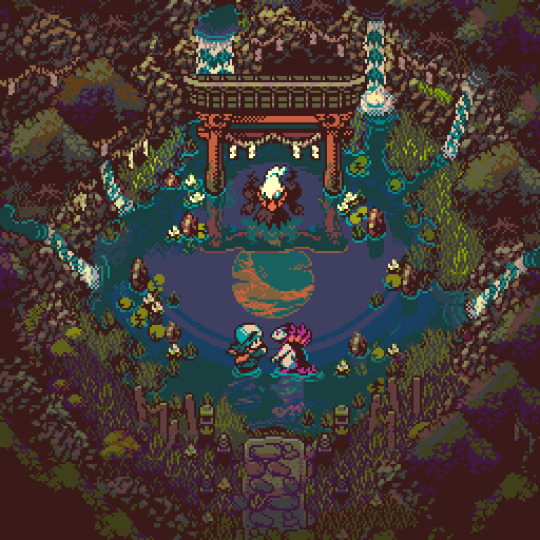
Mythical Encounters in ancient Hisui: the Shrine at Newmoon Island Grove
#pixelart#ドットの日#pokemon#hisuian typhlosion#pixel background#pokemon fanart#japanese culture#yokai#nintendo#retrogamer#super nintendo#game boy color#8 bit aesthetic#16 bit games#legends arceus#darkrai#pokemon legends arceus#mythical pokemon#dark type#torii gate
7K notes
·
View notes
